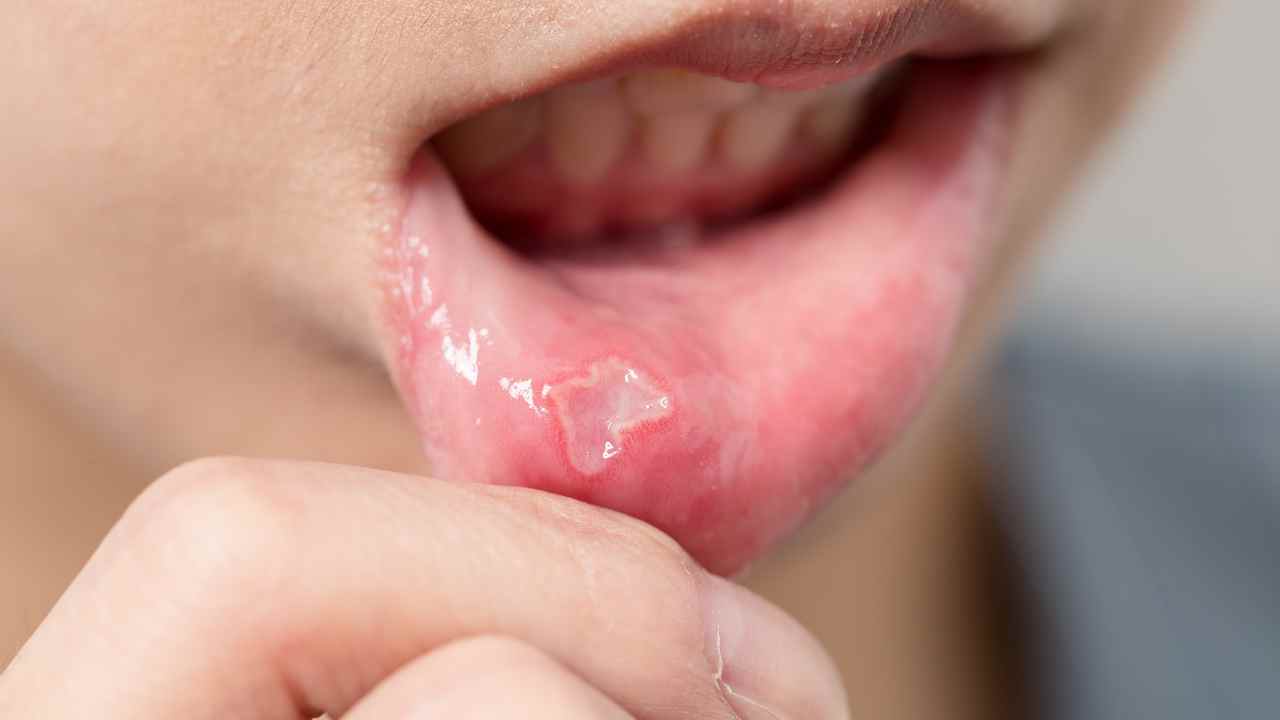Mouth ulcers, those pesky and painful sores that appear in the mouth, can disrupt your day and make eating, drinking, and even talking a challenge. Beyond the discomfort, they remind us of the vital role oral health plays in our overall well-being. This detailed guide aims to demystify mouth ulcers, offering insight into their causes, treatment options, and preventive measures.
Understanding Mouth Ulcers
What Are Mouth Ulcers?
Mouth ulcers, also known as canker sores, are small, shallow lesions that develop on the soft tissues in the mouth or at the base of the gums. Unlike cold sores, mouth ulcers are not contagious but can be quite bothersome.
Types of Mouth Ulcers
Mouth ulcers can be classified into three main types:
- Minor ulcers: Small and usually heal within two weeks without scarring.
- Major ulcers: Larger and deeper, often taking six weeks to heal and can leave scarring.
- Herpetiform ulcers: A cluster of dozens of smaller sores that merge into one larger ulcer. These can be particularly painful and may take longer to heal.
Common Causes and Triggers
The exact cause of mouth ulcers remains unclear, but several factors can trigger their development, including:
- Minor mouth injuries from dental work, hard brushing, or accidental bites.
- Sensitivities to acidic or spicy foods.
- Vitamin deficiencies, particularly B12, zinc, folate, and iron.
- Hormonal changes during menstruation.
- Stress or lack of sleep.
- Certain medications or medical conditions.
Signs and Symptoms to Look Out For
The most obvious sign of a mouth ulcer is a painful sore on the inside of your mouth. You might also notice:
- Swelling and redness around the sore.
- Difficulty eating or talking due to discomfort.
- In severe cases, fever or swollen lymph nodes.
Diagnosis and Treatment
Diagnosing Mouth Ulcers
Mouth ulcers are typically diagnosed based on the appearance of the sore. Your doctor or dentist might also review your medical history or conduct a few tests to rule out underlying conditions.
Treatment Options
Most minor mouth ulcers heal on their own within a couple of weeks. However, for pain relief and faster healing, treatments include:
- Over-the-counter topical pastes and gels.
- Mouth rinses with a steroid or antimicrobial ingredient.
- Oral medications for more severe cases.
- Laser therapy in some dental offices.
Managing and Speeding Up Recovery
- Avoid spicy, acidic foods that can irritate the ulcer.
- Use a soft-bristled toothbrush and gentle toothpaste.
- Apply ice to the ulcer or rinse your mouth with salt water.
Prevention and Lifestyle Changes
Dietary and Oral Hygiene Habits
- Maintain a balanced diet rich in vitamins and minerals.
- Keep up with good oral hygiene practices, including regular brushing and flossing.
- Try to avoid foods that trigger your mouth ulcers.
Lifestyle Changes
- Manage stress through relaxation techniques like yoga or meditation.
- Ensure you get enough sleep.
- Quit smoking if you smoke, as it can exacerbate mouth ulcers.
When consult with Doctor
While most mouth ulcers are harmless and resolve without intervention, it’s crucial to seek medical advice if:
- Your ulcers are unusually large or painful.
- They persist for more than three weeks without signs of healing.
- You experience frequent recurrences.
- There are signs of bacterial infection, such as fever or significant swelling.
Complications and Future Outlook
Unattended mouth ulcers can lead to complications like secondary infections. The future of mouth ulcer treatment looks promising, with ongoing research into more effective healing methods and preventive measures.
Conclusion
Mouth ulcers might be small, but they can significantly impact your quality of life. Understanding their causes, treatment options, and preventive measures can help you manage them more effectively. Remember, maintaining good oral hygiene and a healthy lifestyle can go a long way in preventing these uncomfortable sores.
We encourage you to share your experiences and tips for managing mouth ulcers. Together, we can support each other in achieving better oral health.
throughout your treatment and that you achieve the best possible outcome.

